featured
Honoring LGBTQIA+ Cannabis Trailblazers: A Pride Month Reflection
Published
5 hours agoon
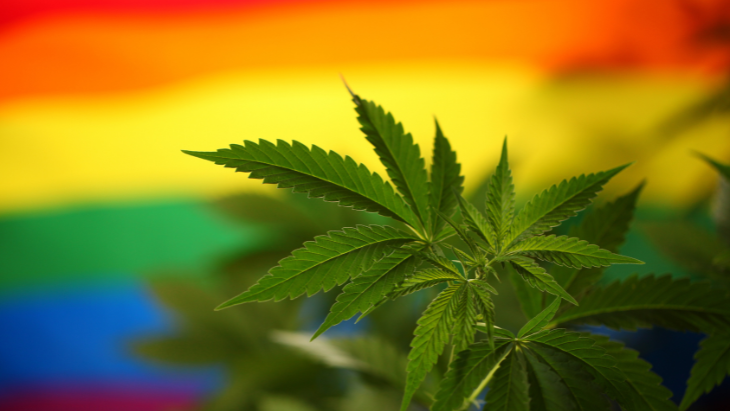
Introduction: A Coalition of Pride and Cannabis Law Reform

In the struggle for cannabis legalization, one essential thread is often overlooked: the deep historical alliance between LGBTQIA+ activists and the marijuana reform movement. From the earliest fights for compassionate access during the AIDS crisis to the halls of Congress and state legislatures, LGBTQIA+ individuals have been at the forefront of change. This coalition not only helped change drug policy, but also transformed public perceptions of cannabis from a stigmatized vice into a symbol of care, community, and healing. As we wind down Pride Month, we celebrate the activists, politicians, business owners, and community leaders whose bravery and advocacy bridged LGBTQIA+ rights and cannabis reform, creating a legacy that continues to influence public policy, public opinion, and the cannabis industry today.
Early Alliances in San Francisco: Harvey Milk and Dennis Peron
The intersection of LGBTQ+ activism and cannabis reform can be traced back to 1970s San Francisco – particularly the Castro district, a haven for queer community and counterculture. Here, an openly gay Air Force veteran named Dennis Peron settled after his service in Vietnam and became a bold advocate for the plant. Peron began selling cannabis openly in the Castro, running a makeshift “Big Top” market and later a cannabis-friendly restaurant, defying laws because he saw the plant’s benefit and believed in personal freedom.
In the same neighborhood, Harvey Milk emerged as a political trailblazer. In 1977 Milk became California’s first openly gay elected official, winning a seat on San Francisco’s Board of Supervisors. A strong supporter of drug policy reform, Milk used his platform to push boundaries that few mainstream politicians of the time would. In fact, one of the earliest pro-cannabis policies in the country came from their alliance: Proposition W (a San Francisco ballot initiative in 1978) urged the city’s District Attorney to cease arresting and prosecuting people for cannabis offenses. This nonbinding measure – championed by Milk at Peron’s urging – passed, signaling a progressive shift in local attitudes toward marijuana.
Sadly, Milk’s support for ending cannabis prohibition was cut short by his assassination in late 1978, a hate crime perpetuated by an anti-LGBTQ former city council member. Yet his loyalty to the movement was “undoubtedly a crucial early step” toward broader legalization. Milk and Peron’s collaboration in the Castro sowed the seeds of change: as one account put it, these activists and their friends “knew what too many still forget – the systems that criminalize queerness and cannabis use are one and the same.” In other words, both LGBTQ people and cannabis consumers faced stigma and criminalization, and both causes demanded justice and liberation.
Compassion in the AIDS Crisis: Pioneers of Medical Marijuana
In the 1980s and early 1990s, the AIDS epidemic devastated LGBTQ communities, and government indifference left many ailing people without hope. In this desperate time, cannabis emerged as an underground lifeline. People living with HIV/AIDS found that marijuana alleviated nausea, stimulated appetite, and relieved pain when no legal medicines could. But using cannabis was still a crime, forcing patients to risk arrest for relief. LGBTQ+ activists saw this injustice and fought back – becoming the nation’s earliest and most vocal advocates for medical cannabis access.
Dennis Peron again stepped up to the plate. After watching his partner Jonathan West suffer and ultimately succumb to AIDS in 1990, Peron was determined to ease others’ suffering. He co-founded the San Francisco Cannabis Buyers Club – the first public medical marijuana dispensary in the U.S. – to distribute cannabis to AIDS patients and others with serious illnesses. He also led a 1991 San Francisco voter initiative known as Proposition P, which passed with an overwhelming 79% approval and urged California’s state government to permit the medical use of marijuana. This marked the first time since the 1930s that doctors could recommend cannabis to patients without fear of losing their license – at least in San Francisco. Proposition P was a local resolution, but it built momentum for statewide reform.
Meanwhile, an unlikely ally became a folk hero of compassionate cannabis care: Mary Jane “Brownie Mary” Rathbun. A grandmotherly former waitress, “Brownie Mary” earned her nickname by baking cannabis brownies and secretly delivering them to AIDS patients in San Francisco’s hospitals during the mid-1980s. Rathbun, though not LGBTQ herself, was volunteering on AIDS wards and saw first-hand how infused edibles mitigated pain. Despite being arrested multiple times for her edible giveaways, she remained defiant and kept baking for those in need. By publicly fighting her charges and speaking to the media, Brownie Mary helped humanize the medical marijuana movement – shattering the “stoner” stereotype with the image of a kindly senior bringing relief to the sick.
“Here was a sweet old lady – not a stereotypical ‘burnout’ – risking her freedom to bring comfort to the dying,” one account noted, and this compassionate image shifted hearts and minds about cannabis.
Together, Dennis Peron and Brownie Mary became the dynamic duo of medical cannabis activism. They organized support groups, lobbied officials, and repeatedly put themselves on the line to demand compassion. As AIDS raged, “marijuana was just part of the treatment,” as activist Paul Scott recalls – it alleviated the horrific symptoms of both the illness and the early AIDS medications, which were “almost as deadly as the virus” in their side effects. Scott, a gay HIV/cannabis activist who lived in San Francisco in 1994, notes that the city’s progressiveness allowed these compassionate cannabis efforts to take root while much of the country looked away. A student of Peron’s, Scott quickly became a leader of the LGBTQ movement in his own right, founding the city of Los Angeles’s Black Gay Pride organization and creating the first medical cannabis facility in Inglewood to help terminally ill patients get safe, legal access to cannabis. He remains at the forefront of equity and legalization activism in California today.
The culmination of this grassroots activism came in 1996, when California voters passed Proposition 215, making it the first state to legalize marijuana for medical use. Peron co-authored Prop 215 – often called the Compassionate Use Act – and has since been recognized as “the father of medical marijuana” for his role. Prop 215’s victory was directly fueled by the compassion and courage of the LGBTQ+ community and their allies: as a recent Pride campaign aptly summarized, Prop 215 “would not have passed without the efforts of HIV/AIDS activists, many of them queer, who demanded compassionate access to cannabis as medicine.” These activists reframed the debate entirely: cannabis was no longer just about “getting high,” it was about quality of life, dignity, and care for people society was in danger of forgetting. By caring for “their own” when few others would, queer cannabis advocates in the 1980s–90s blazed a trail that ultimately opened the doors to medical marijuana laws across the country . States that later adopted medical programs in the late 1990s and 2000s followed the template proven in California – a template written in large part by LGBTQIA+ activists in the Castro district of San Francisco.
It’s important to recognize how these early efforts changed the national conversation. “We had all these other diseases that marijuana helps with,” Paul Scott observed. “But it wasn’t until the visual effect of young white men dying in hospitals with AIDS that it shook the conscience of America and began to change the law.” In other words, the compassion shown to AIDS patients – many of them gay men – put a human face on the cannabis issue that the public simply could not ignore. What had been a fringe cause was now a moral cause. The groundwork laid by Peron, Brownie Mary and their cohort not only resulted in Prop 215’s passage, but also set an example: soon after California’s landmark law, other states began enacting medical cannabis programs of their own . The first domino had fallen, largely thanks to a coalition of queer activists and patients who stood up for the right to heal.
Changing Laws Through Openly LGBTQ+ Leadership
As cannabis reform expanded from medical to broader legalization in the 21st century, openly LGBTQ+ leaders have continued to play pivotal roles as legislators, policymakers, and government officials championing change. These individuals carried the torch from street activism into the political mainstream, often drawing explicit parallels between the struggles for LGBTQ equality and for sane marijuana laws.
One early pioneer in elected office was Congressman Barney Frank of Massachusetts. Frank came out as gay in the 1980s – the first member of Congress to do so voluntarily – and was for decades one of Capitol Hill’s boldest voices for drug reform. Remarkably, Frank had advocated for marijuana decriminalization since the early 1970s (first as a state legislator) and in 1978 he introduced one of Congress’s first bills to remove federal penalties for personal cannabis use. Though such bills languished at the time, Frank persisted. He often noted the similarities between the fight for same-sex marriage and marijuana legalization, arguing that both were battles against ignorance and prejudice. Just as gay marriage opponents falsely claimed societal harm, cannabis prohibitionists spread fear – and in both cases, Frank said, “reality beat the prejudice” once people saw with their own eyes that the feared harms never materialized.
As he predicted, state-by-state breakthroughs in policy (medical marijuana laws in the 1990s, early gay marriage laws in the 2000s) proved the sky didn’t fall, accelerating public acceptance. Barney Frank’s dual legacy – championing LGBTQ rights and drug policy reform – exemplifies how intertwined the movements have been. By the time he retired in 2013, Frank had helped pave the way for major shifts, including the end of federal bans on medical cannabis interference (through budget amendments) and greater bipartisan support for legalization.
At the state level, openly LGBTQ lawmakers have authored and sponsored some of the most significant cannabis legislation in recent years. For example, in Illinois, State Rep. Kelly Cassidy – an out lesbian lawmaker – was the chief sponsor of the 2019 bill that made Illinois the first state to legalize adult-use cannabis via the legislature (rather than by voter initiative). Cassidy’s leadership was instrumental in crafting Illinois’ law with strong social equity provisions, a model that other states have looked to. In her own words, this achievement is one of her proudest, not only expanding personal freedom but also addressing past injustices by expunging thousands of cannabis convictions. Cassidy is part of a wave of LGBTQ public servants who see cannabis reform as a matter of justice, health, and community wellness – values long core to queer activism.
Another prominent figure is Jared Polis, who made history in 2018 as the first openly gay man elected governor of a U.S. state – and fittingly, that state was Colorado, a trailblazer in cannabis legalization. Prior to becoming governor, Polis had been a vocal advocate for cannabis reform in Congress, even co-founding the Congressional Cannabis Caucus during his decade as a federal representative. As governor of Colorado, Polis has fully embraced the role of what one journalist dubbed “America’s first pot governor,” actively courting the cannabis industry and pushing to normalize and advance the legal market. He took office five years after Colorado’s first recreational shops opened, and quickly set about signing further pro-cannabis measures that his predecessor had vetoed.
Polis’s outspoken support for cannabis – he even hired a dedicated “cannabis outreach director” for his gubernatorial campaign – signaled how far the movement has come: what was once political suicide is now a platform for electoral success. His success also highlights the synergy of LGBTQ progress and cannabis progress; Colorado, a state that led on marijuana, was also willing to elect an openly gay governor who proudly supports that cause.
In addition to these high-profile names, there are many other LGBTQ figures in politics and government who have contributed to cannabis reform. In Oregon, Governor Kate Brown, who is openly bisexual, oversaw the implementation of adult-use legalization after voters approved it in 2014 and has advocated for federal reform. Openly gay and lesbian state legislators from Massachusetts to New York to California have been among the co-sponsors of bills to legalize or decriminalize cannabis and to expunge past records. Years before it was popular, leaders like Providence Mayor David Cicilline (later a Congressman) and San Francisco Senator Mark Leno – both openly gay – endorsed medical marijuana access and sensible drug policies as well. Each of these public servants helped push the needle of policy forward, proving that being pro-LGBTQ and pro-cannabis often stem from the same commitment to civil liberties and public health. Indeed, Khadijah Tribble, a Black queer advocate and cannabis policy expert, notes that “any prohibition on civil liberties tends to impact marginalized communities the most” – so it is no surprise that LGBTQ activists understand the urgency of ending cannabis criminalization. Their lived experience with unjust laws fuels their passion to change unjust drug laws.
Changing Minds and Public Opinion
The alliance of LGBTQIA+ activists and cannabis advocates did more than change laws – it changed minds. By the late 1990s, thanks to stories and images emerging from the AIDS crisis, the American public began to see marijuana in a new light: not as a dangerous narcotic, but as a lifeline for the suffering. This profound shift in public opinion was no accident; it was the result of intentional narrative change driven by LGBTQ+ leaders and their allies.
The example of Brownie Mary, mentioned earlier, is instructive. When she was arrested in 1981 and again in the early 90s for distributing medicated brownies, her courtroom testimony and media interviews unapologetically framed her “crime” as an act of compassion. She spoke about terminally ill AIDS patients finding relief in cannabis, shaming prosecutors for wasting resources on a grandma trying to ease pain. Coverage of her cases – complete with her nickname that sounded more sweet than criminal – generated enormous sympathy. Similarly, Dennis Peron’s public campaigns and the very existence of a cannabis buyers’ club for gravely ill patients made it harder for opponents to demonize marijuana users.
As one sociologist (and LGBTQ activist) Wendy Chapkis documented in her research on medical cannabis, patients’ personal stories of regaining appetite or alleviating misery undermined decades of Drug War propaganda. The “evil weed” narrative simply couldn’t hold up against the image of AIDS patients gaining weight thanks to marijuana, or a grandmotherly volunteer risking jail for the sick. These real-life accounts, often amplified by LGBTQ advocates who understood the power of coming out with one’s truth, played a key role in softening public skepticism.
There is a parallel here to the strategy that helped advance LGBTQ rights: coming out. Just as LGBTQ people recognized that living openly was a powerful tool to win public acceptance (“they realized they knew someone gay, and attitudes changed”), cannabis activists adopted a similar approach – encouraging patients and even healthy cannabis consumers to speak openly about their use. This strategy was explicitly likened to coming out of the closet.
Barney Frank often remarked that marijuana legalization would follow the footsteps of gay marriage because once ordinary people saw that their coworkers, neighbors, even family members could use cannabis and remain responsible, productive members of society, the old prejudices would crumble . He noted that both movements had to confront unfounded fears: dire warnings that “society would collapse” if gay couples wed or if pot was allowed. Those warnings proved false in both cases once reality was tested in a few places – Massachusetts with marriage equality, California with medical marijuana – paving the way for broader acceptance. In short, truth defeated stigma. LGBTQIA+ activists uniquely understood how visibility and honest storytelling could change public opinion, and they brought those tactics to cannabis advocacy with remarkable success.
By the 2010s, polls showed that a majority of Americans supported legalizing cannabis – a sea change from the 1980s. The compassionate framing introduced by the AIDS-era activists unquestionably greased the wheels of this change. Medical marijuana, once seen as radical, became mainstream and respected, largely thanks to the groundwork laid by queer advocates in the 80s/90s. And as legalization progressed to include adult-use (recreational) cannabis, many of the remaining arguments against it were defanged by years of positive examples from the medical side. The public had seen cancer and HIV patients helped by cannabis; they had heard respected figures (like doctors, nurses, even clergy) speak in favor of compassion. Much of this can be credited to that initial LGBTQ+ activist push that made compassion and dignity the centerpiece of the cannabis conversation. Today, when we celebrate how far public opinion has come – with cannabis openly sold in dozens of states – we should remember that it was not pop culture alone that changed minds, but also activists in Pride parades and AIDS hospices who spoke truth to power.
However, the LGBTQ+ community’s influence extended into cultural spheres that did help normalize cannabis. Cannabis became entwined with queer culture in positive ways: from the underground LGBTQ club scene where it was part of creative and social expression, to Pride festivals where cannabis advocates eventually marched alongside LGBTQ advocates, and the popularization of queer expression through the phenomenon of RuPaul’s Drag Race. By the time corporate America woke up to Pride, even cannabis brands were proudly joining the celebrations. This cultural crossover further eroded stigma, especially among younger generations who saw both LGBTQ pride and cannabis use as expressions of individuality and freedom, not deviance.
Laganja Estranja, one of the world’s most influential drag performers and a cannabis activist who came to mainstream recognition through Drag Race, has incorporated the plant into everything from her music videos to her merchandise. She has noted that cannabis helps her manage chronic pain, and stated, “Cannabis helped give me the courage to be myself… It brings me closer to myself. The feeling of acceptance is the most powerful thing I get from cannabis.” That sentiment – using cannabis as a tool for wellness and self-discovery – resonates strongly with many in the queer community, especially those exploring identity or coping with trauma. Laganja has also been vocal about the plant’s role in her gender identity transition, which she announced publicly in 2021. In an interview with Fat Nugs Magazine, she explained using cannabis first to numb herself to bullying and confusion in her earliest years, but now “[cannabis] has helped me to accept my journey, deal with my PTSD, and to deal with my fear of being accepted as someone who does not live on the typical gender spectrum.”
Her story is another example of how the LGBTQ movement and cannabis movement share a common story of personal empowerment and the pursuit of authenticity.
LGBTQIA+ Leadership in the Cannabis Industry
As legal cannabis moves from advocacy into industry, the influence of LGBTQIA+ pioneers continues to be felt. The modern cannabis industry, now a multi-billion-dollar sector, is notably inclusive of LGBTQ people in its workforce – a likely legacy of the movement’s queer roots. A recent industry survey found that 14% of cannabis industry employees identify as LGBTQIA+, nearly double the percentage in the overall U.S. workforce. This isn’t entirely surprising: many early cannabis businesses sprang from the medical marijuana era in places like San Francisco, Los Angeles, and Seattle, where LGBTQ entrepreneurs and allies had been involved from the start.
Some of the first dispensaries and cannabis service organizations were founded or co-founded by LGBTQ individuals. For instance, in West Hollywood (a city with a large gay population), cannabis advocacy and business have long gone hand-in-hand with the city’s progressive politics. In the 1990s, organizations like the Los Angeles Cannabis Resource Center worked closely with AIDS organizations; its founder, Scott Imler, was gay and collaborated with Peron on Prop 215. In the years since, a number of queer-led cannabis ventures have emerged.
Proud Mary, founded by Brie Brewer, is a New York-based company that promotes education and networking for queer individuals in the cannabis space, partnering with local drag performers and LGBTQ activists to highlight affirming spaces and brands and create fundraisers for equity. Stone Road, founded by Lex Corwin, is known for creating “the most beautiful joints in the world” and for marketing campaigns that center queer and diverse models. Drew Martin, created by Drew Gosselin, directly cites Dennis Peron’s activism as inspiration for their popular botanicals. Andres Rigal and Taylor Bazley founded Green Qween, a Los Angeles dispensary that has become famous for its commitment to fundraising for BIPOC and LGBTQ+ causes. Doble Reina, founded by sisters Javi and Flori, is a Latina and LGBTQ-owned accessories brand that brings Chilean artistry to American smokeware.
Cann, the renowned beverage brand by Luke Anderson and Jake Bullock, is known for breaking cultural barriers. In 2022, the brand partnered with Weedmaps on a mainstream campaign, “Taste So Good,” which showcased an all-star ensemble in a music video that doubled as a Cann ad. The video featured several RuPaul’s Drag Race alums including winner Willow Pill, vocalists Hayley Kiyoko, Ke$ha, MNEK, and VINCINT, and cameos from Sarah Michelle Gellar and Oscar winner Patricia Arquette. Eventually, the campaign took home five Clio Awards and recognition from outlets such as AdWeek, Thrillist, and Broadway World.
Brands like Peak Extracts (co-founded by a queer woman in Oregon) explicitly celebrate LGBTQ culture in their marketing and hiring.
The industry has also shown its appreciation for the LGBTQ community through campaigns and products. Major companies have released Pride-themed cannabis products – for example, the edibles brand Kiva Confections launched limited-edition rainbow “Pride Gummies” and donated a portion of proceeds to LGBTQ nonprofits. Such efforts not only honor the community but also acknowledge a historical debt: the legal cannabis trade quite literally exists because of those early activists. As one advocacy campaign this year, Loud & Proud, reminded consumers and companies: “queer liberation and cannabis justice have long burned from the same flame”. This campaign, featuring drag artists and partnered with the Last Prisoner Project, celebrates the “queer legacy of cannabis activism” while demanding that today’s industry work toward a future where no one is incarcerated for a plant and no one is punished for being proud. It’s a powerful call to action for businesses to remember their roots and to continue the push for social justice, whether that means advocating for expungements of cannabis convictions or standing against discriminatory laws targeting LGBTQ people.
Yet, challenges remain in the industry. While LGBTQ representation among rank-and-file cannabis workers is high, leadership and ownership are not as diverse. Advocates point out that as the industry matures, it must not shut out the very communities that helped birth it. Organizations and social equity initiatives are working to support queer and trans entrepreneurs, ensuring they have access to capital and opportunity in this space. The spirit of inclusivity, mutual support, and “community first” that characterized the AIDS-era buyers clubs is something many modern cannabis businesses strive to emulate – from dispensaries that host Pride fundraisers to cannabis brands that focus on wellness for queer youth and elders. In short, the activist ethos is not lost; it’s evolving into an industry ethos of diversity and care.
A Continuing Intersection and a Shared Fight
The story of LGBTQIA+ contributions to cannabis legalization is not just history – it’s an ongoing narrative. Even today, both movements find common cause in fighting stigma and unjust laws. Khadijah Tribble has noted that marijuana legalization “remains an LGBT issue today” for several reasons. In many conservative regions, queer people (especially those who are also people of color or transgender) are disproportionately targeted by drug enforcement, just as they are by other discriminatory policing. And in parts of the country where HIV/AIDS still exacts a heavy toll (such as the U.S. South), access to medical cannabis for symptom relief is often lagging due to restrictive laws. Thus, the fight for equitable cannabis access is intertwined with the fight for LGBTQ equality and healthcare access. Both seek a world where people are not criminalized for who they are or for the medicine they choose.
As we reflect on this proud legacy during Pride Month, it’s clear that the LGBTQIA+ community revolutionized cannabis policy and culture in ways that still reverberate. They taught us about courage in the face of life-and-death stakes, about compassion triumphing over fear, and about the power of coming together as a community to demand change. Figures like Harvey Milk and Dennis Peron, Brownie Mary Rathbun, Barney Frank, Paul Scott, Kelly Cassidy, and countless unnamed caregivers and patients – these are the heroes who turned the tide. They turned personal tragedy into societal transformation, linking arms as queer and cannabis activists to insist that humanity and justice guide our laws.
Their impact is evident every time a cancer patient lawfully uses medical marijuana in Middle America – an impossibility to imagine before 1996. It’s evident when a state legislator speaks proudly about both her wife and the cannabis bill she’s sponsoring, without fear or shame. It’s evident in the vibrant booths of queer-owned cannabis businesses at Pride festivals, celebrating openly what was once hidden in the shadows. Public policy has been reformed, public opinion has been enlightened, and a new industry is being built on principles of inclusion – all thanks to this remarkable coalition of LGBTQIA+ activists and cannabis advocates.
In honor of Pride Month, we at NORML salute these trailblazers. This celebratory reflection is also a call to action: to remember that the struggle is not over. We must continue working so that the cannabis legalization movement remains inclusive and justice-focused – just as it started – and so that the LGBTQIA+ community continues to have a strong voice in shaping cannabis policy. Together, in solidarity, we will carry on the legacy of compassion and courage, ensuring that both Pride and cannabis reform keep moving forward, hand in hand, towards a freer and more equitable society for all.
Sources: The historical and contemporary insights above are drawn from a rich record of reporting and analysis. Notable references include first-hand accounts in LGBTQ publications like The Washington Blade, analyses of the AIDS crisis and cannabis activism, biographies of key figures, and modern industry surveys and campaigns highlighting LGBTQ contributions, among others. These sources document the undeniable role queer advocates played in legalizing medical marijuana and advancing cannabis reform over the decades. The legacy of this intersectional struggle is well summarized by activists themselves: “The LGBTQ community…were the first main activists pushing for medicinal marijuana laws,” as Khadijah Tribble affirmed, and Prop 215 “would not have passed” without queer HIV/AIDS activists leading the charge. Today’s cannabis freedoms truly stand on the shoulders of these LGBTQIA+ pioneers. We honor their stories and continue their fight.
Related

Author: mscannabiz.com
MScannaBIZ for all you Mississippi Cannabis News and Information.
You may like
-


Temple Ball Hash Tutorial: From Dry Sift to Cure-Ready Resin
-


Kentucky Medical Marijuana Growers Will Be ‘Putting Seed In The Ground Really Soon,’ Governor Says
-


How to make dry sift hash: a solventless masterclass
-


Marijuana Industry Lawsuit Has ‘Zero Chance’ Of Being Heard By Supreme Court, Former DOJ Lawyer Says (Op-Ed)
-
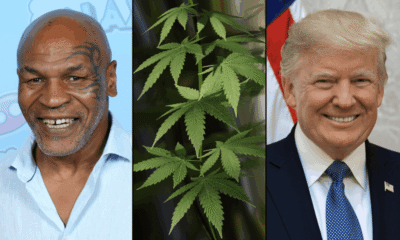

Mike Tyson Tells Trump To Reschedule Marijuana And Free Prisoners In Fox News Appearance
-


New Hampshire Bill To Ease Psilocybin Penalties Advances Through House But Is Tabled In Senate
featured
Kentucky Medical Marijuana Growers Will Be ‘Putting Seed In The Ground Really Soon,’ Governor Says
Published
59 minutes agoon
June 30, 2025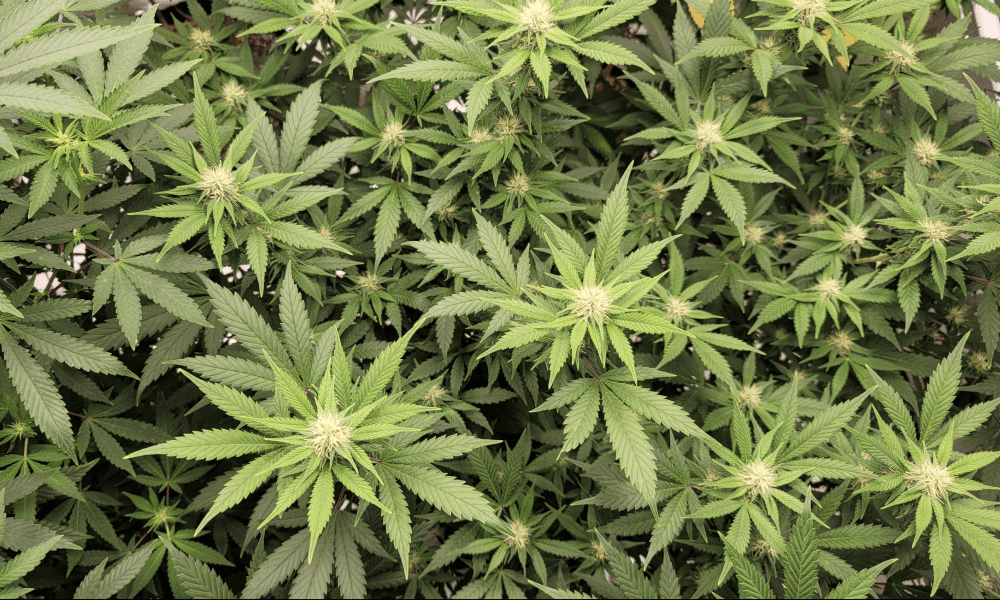
The governor of Kentucky says that he expects to see medical marijuana growers “putting seed in the ground really soon,” projecting that patients will have access to cannabis before the year’s end.
Speaking with reporters after his “Team Kentucky” update, Gov. Andy Beshear (D) was asked whether medical marijuana patients will have to wait until 2026 before dispensaries open and products are available.
“I hope not,” the governor said. “On medical marijuana, we’re getting really close—this fall and this winter, I think we are very close to doing our site visits to both growers and potentially even the first processor.”
“My sense is that it’s probably the processors—with the amount of equipment and the size of the investment there—that are going to drive that,” he said. “But the first set of growers are going to be putting seed in the ground really soon.”
Beshear added that he acknowledges “it’s taken longer than we would have liked” to stand up the industry since he signed medical marijuana legalization into law in 2023.
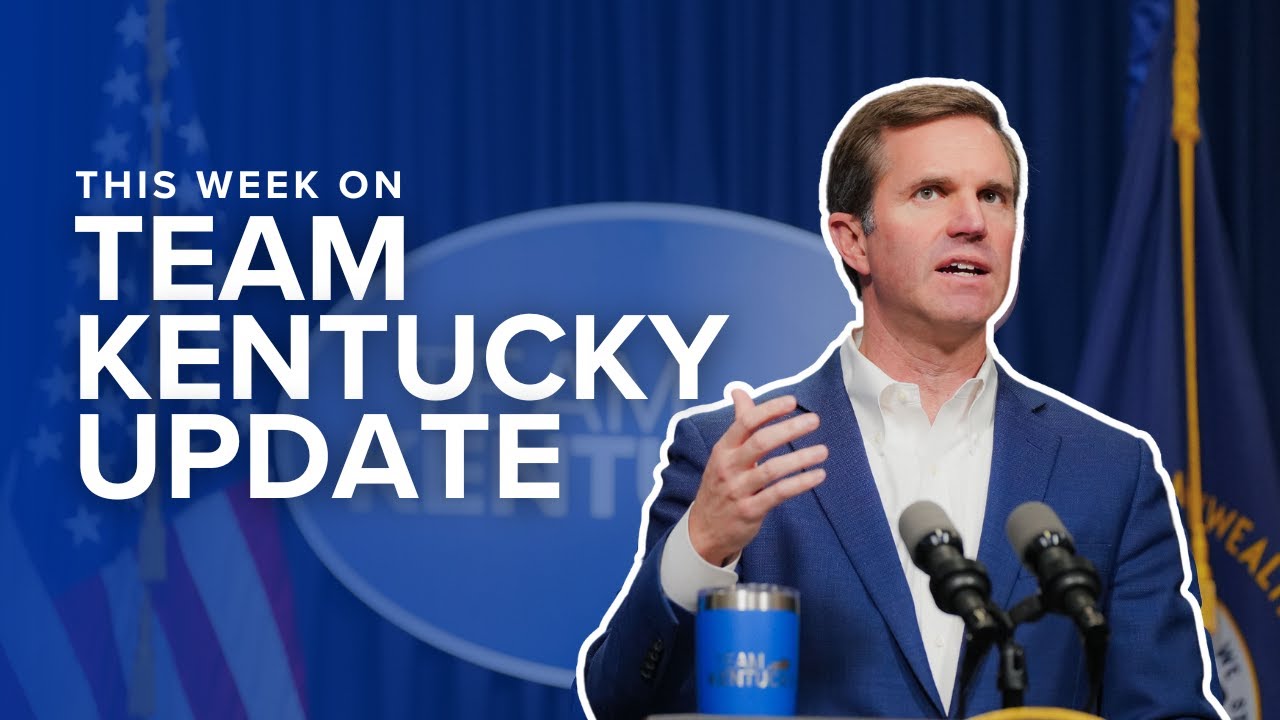
“But the law kind of set that up with how it had to be implemented,” he said.
The governor noted that, in recognition of the delayed implementation, he recently signed an executive order to waive renewal fees for patients who get their cards this year so that they don’t get charged again before retailers open. And another order he signed providing protections for qualified patients who obtain medical marijuana outside of Kentucky “will stay in place.”
“We’re making sure that that doesn’t hold us back from getting the other parts open, because we’re opening all these different parts at the same time,” he said. “So almost all of our dispensaries [that received licenses] now have their final counties. I think we will have all of them with the final counties here in about a month.”
Beshear separately announced this month that the state has launched a new online directory that lets people see where medical cannabis dispensaries will be opening near them.
He emphasized that the state has been working to deliver access to patients “at the earliest possible date,” and that involved expediting the licensing process. The governor in January also ceremonially awarded the commonwealth’s first medical marijuana cards.
—
Marijuana Moment is tracking hundreds of cannabis, psychedelics and drug policy bills in state legislatures and Congress this year. Patreon supporters pledging at least $25/month get access to our interactive maps, charts and hearing calendar so they don’t miss any developments.![]()
Learn more about our marijuana bill tracker and become a supporter on Patreon to get access.
—
Meanwhile, the governor sent a letter to Kentucky’s congressional delegation in January, “urging them to take decisive action to protect the constitutional rights of our law abiding medical cannabis patients” by repealing the federal ban on gun possession by people who use marijuana.
That came after bipartisan Kentucky senators filed legislation that similarly called on the state’s federal representatives to take corrective action, which Beshear said he supports but would like to see even more sweeping change on the federal level.
The federal Bureau of Alcohol, Tobacco, Firearms and Explosives (ATF) warned Kentucky residents late last year that, if they choose to participate in the state’s medical marijuana program, they will be prohibited from buying or possessing firearms under federal law.
As far as the implementation of the state’s medical cannabis law goes, Beshear said in his State of the Commonwealth address in January that patients will have access to cannabis sometime “this year.” He also later shared tips for patients to find a doctor and get registered to participate in the cannabis program.
Health practitioners have been able to start assessing patients for recommendations since the beginning of December.
While there currently aren’t any up-and-running dispensaries available to patients, Beshear has further affirmed that an executive order he signed in 2023 will stay in effect in the interim, protecting patients who possess medical cannabis purchased at out-of-state licensed retailers.
During last year’s November election, Kentucky also saw more than 100 cities and counties approve local ordinances to allow medical cannabis businesses in their jurisdictions. The governor said the election results demonstrate that “the jury is no longer out” on the issue that is clearly supported by voters across partisan and geographical lines.
New Chicago Police Policy Discourages Searches Based On Marijuana Odor
Photo courtesy of Mike Latimer.

Author: mscannabiz.com
MScannaBIZ for all you Mississippi Cannabis News and Information.
featured
Marijuana Industry Lawsuit Has ‘Zero Chance’ Of Being Heard By Supreme Court, Former DOJ Lawyer Says (Op-Ed)
Published
2 hours agoon
June 30, 2025
“The odds are always against the Supreme Court hearing any particular case, but the cannabis industry’s approach in this one absolutely ensures it won’t happen.”
By James B. Mann, former U.S. Department of Justice Tax Division deputy assistant attorney general
A much-hyped lawsuit meant to challenge federal cannabis law has officially flamed out. The First Circuit Court of Appeals recently issued a unanimous opinion rejecting Canna Provisions v. Garland (also known as Canna Provisions v. Bondi), a case widely seen as the cannabis industry’s best shot at attacking federal prohibition through the courts.
The case was intended to strike down cannabis’s Schedule I classification under the Controlled Substances Act and eliminate the crushing tax burden imposed by Section 280E of the Internal Revenue Code. Instead, it ended in a resounding defeat—with precisely zero chance of being heard by the Supreme Court.
Section 280E is one of the most punishing burdens facing the legal cannabis industry. Originally enacted in the 1980s to prevent drug traffickers from deducting business expenses, 280E blocks cannabis operators—even fully legal ones under state law—from writing off ordinary costs like rent, payroll or equipment. The result is that cannabis businesses often pay two to three times more in federal income tax than they would if they sold any other legal product.
The cannabis industry’s battle against 280E is now being waged across all three branches of government. Congress is being lobbied for legislative relief. The executive branch is being pressured to reschedule cannabis so 280E no longer applies. And the judiciary has been pulled in through legal challenges like Canna Provisions.
The lawsuit was filed with much fanfare in October 2023—it was funded by many of the large cannabis companies and used a big-name law firm, Boies Schiller. The goal was to overturn a 2005 Supreme Court decision, Gonzales v. Raich. In Raich, the Court upheld the Controlled Substances Act as applied to cannabis grown solely for personal medical use within one state.
Boies Schiller essentially made two arguments—first, that the realities of the cannabis market had changed so much since 2005 that Raich was outdated and wrong, and second, that Congress had passed legislation proving cannabis no longer belongs in Schedule I. The First Circuit wasn’t having any of it. The 3-0 opinion pointed out that even though the facts had changed, they had not changed enough to make Congress’s classification irrational as part of a comprehensive regime of drug regulation (the relevant test).
The court also dismissed the claim that federal legislation proved cannabis should be removed from Schedule I. The opinion noted that the funding restrictions were limited in their effect and applied only to medical cannabis (Canna Provisions and the other plaintiffs are adult-use sellers).
Interestingly, the opinion repeatedly criticizes the lack of logical development of Canna Provisions’s arguments, going so far as to dismiss one of the most important arguments for “lack of development.”
Supreme Court justices vote on what cases to hear, and it takes four votes to put a matter on the docket. In a lawsuit like Canna Provisions, there is no split among the circuit courts for the Supreme Court to resolve. That means the only real path to a hearing was to convince the justices that the case presented an urgent federal legal question.
There is one justice still on the bench from Raich—Justice Clarence Thomas. His dissent in that case, and his opinions in other Commerce Clause cases, emphasize his belief that federal power has stretched far beyond the Framers’ intent. Justice Sandra Day O’Connor’s dissent also argued that the federal law intruded on core state powers.
Bizarrely, Boies Schiller never raised the arguments made by either Thomas or O’Connor. It’s unclear who they thought would vote to hear the case based on the strategy they pursued.
And while oral argument isn’t usually a decisive factor in appellate decisions, it didn’t help that David Boies was completely shredded by the three-judge panel. (The First Circuit has publicly available recordings of oral arguments.) Boies was once one of the most prominent litigators of his generation—there’s even a chapter in a Malcolm Gladwell book about his mind and how he overcame dyslexia. But at 84, he was unprepared for basic questions and clearly no longer at his peak.
The odds are always against the Supreme Court hearing any particular case, but the cannabis industry’s approach in this one absolutely ensures it won’t happen. More broadly, Canna Provisions underscores the complexity of using litigation to advance federal cannabis reform. While carefully crafted legal challenges may still have a role, this case failed to present the type of arguments or posture that could realistically have drawn the Supreme Court’s interest.
James B. Mann is a tax attorney whose practice centers on cannabis taxation and complex business tax planning. A Harvard Law and Columbia MBA graduate, he previously served as deputy assistant attorney general in the U.S. Department of Justice’s Tax Division, led tax-debt advisory at Société Générale, and represented major cannabis clients—including arguing the Harborside case in the Ninth Circuit.
Photo elements courtesy of rawpixel and Philip Steffan.

Author: mscannabiz.com
MScannaBIZ for all you Mississippi Cannabis News and Information.
featured
Mike Tyson Tells Trump To Reschedule Marijuana And Free Prisoners In Fox News Appearance
Published
3 hours agoon
June 30, 2025
Retired boxer Mike Tyson has delivered his message to reschedule, and ultimately legalize, marijuana to President Donald Trump on one of his most-watched TV networks: Fox News.
Days after leading a letter alongside other professional athletes and celebrities promoting cannabis reform that was sent to Trump on Friday, Tyson joined FOX & Friends on Monday where he made made the case for rescheduling marijuana, expanding clemency and allowing licensed cannabis businesses to access the banking system.
“Cannabis is in the same category as heroin. How do you categorize it with heroin?” he said. “Anybody that ever smoked cannabis knows there’s no comparison and that it’s just ridiculous.”
Tyson reiterated his support for moving marijuana from Schedule I to Schedule III of the Controlled Substances Act (CSA)—a reform that was initiated under the Biden administration but has since stalled at the Drug Enforcement Administration (DEA). And he also stressed the economic opportunity of changing federal marijuana laws for state-licensed businesses.
“There’s over 500,000 people that can’t get loans in the cannabis business alone, and that’s just so ridiculous,” Tyson, who owns the marijuana company Tyson 2.0, said. “It’s such a great income for the country. And I just can’t see it. It’s ridiculous.”
He added that advocates are “also working on clemency, because there’s people that still in prison—been in there for 15 years, got enormous amount of time and ridiculous sentences—for cannabis.”
Tyson also argued that “the first mistake that we’re making is categorizing [marijuana] as a drug. It’s not a drug. It’s a medicine.” And he said his personal experience with cannabis is a testament to that, pointing out that he was “going crazy” as a young adult before he started consuming marijuana for its therapeutic benefits.
Asked whether he feels the plant should be fully legalized nationwide, Tyson said “100 percent yes,” in large part because “the time and the sentences” that people criminalized over cannabis have received are “just totally ridiculous.”
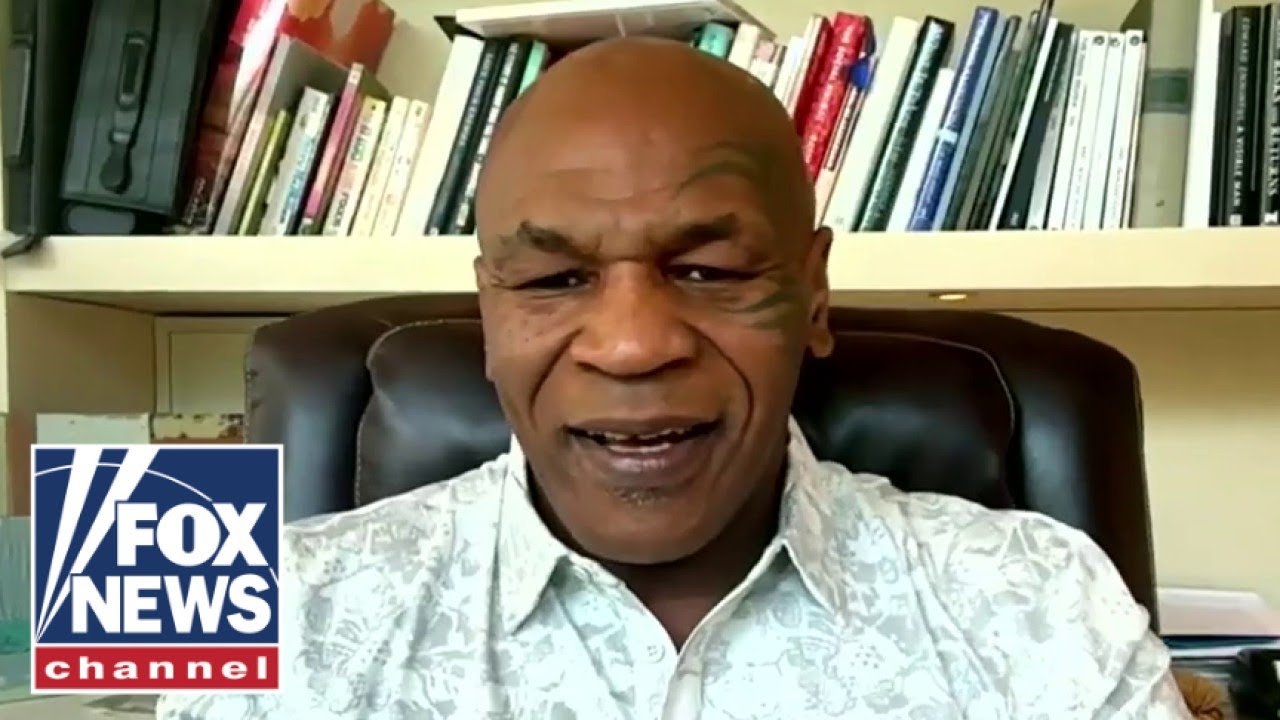
The boxer cited the criminal justice reform advocate and former federal cannabis prisoner Weldon Angelos as an example. Angelos helped organize the letter to Trump, who pardoned him over a cannabis-related offense during his first term.
Tyson, along with Acting U.S. Attorney for the District of New Jersey Alina Habba, also recently toured a Drug Enforcement Administration (DEA) lab. And during his Fox News interview, he echoed points from that tour, asserting that illicit operators from China and Mexico are “filling our cannabis with fentanyl and pesticides and all that stuff, and it’s just killing human beings.”
Throughout the talk, Tyson stressed that he feels “cannabis is not a drug.”
“No one’s ever [overdosed from cannabis,” he said. People drink. How many people die drinking? You put a bunch of people that don’t like each other in the room and give them alcohol and they kill each other. You give them some cannabis and they start taking selfies or whatever.”
The interview comes about a week after Trump’s first pick for attorney general in the current administration, former Rep. Matt Gaetz (R-FL), reiterated his own support for rescheduling cannabis—suggesting in an interview with a Florida Republican lawmaker that the GOP could win more of the youth vote by embracing marijuana reform.
On marijuana rescheduling, the president did endorse the policy change on the campaign trail. But he’s been publicly silent on the issue since taking office. Gaetz said last month that Trump’s endorsement of a Schedule III reclassification was essentially an attempt to shore up support among young voters rather than a sincere reflection of his personal views about cannabis.
A survey conducted by a GOP pollster affiliated with Trump that was released in April found that a majority of Republicans back a variety of cannabis reforms, including rescheduling. And, notably, they’re even more supportive of allowing states to legalize marijuana without federal interference compared to the average voter.
—
Marijuana Moment is tracking hundreds of cannabis, psychedelics and drug policy bills in state legislatures and Congress this year. Patreon supporters pledging at least $25/month get access to our interactive maps, charts and hearing calendar so they don’t miss any developments.![]()
Learn more about our marijuana bill tracker and become a supporter on Patreon to get access.
—
Meanwhile, Trump picked former Florida Attorney General Pam Bondi (R) to run DOJ, and the Senate confirmed that choice. During her confirmation hearings, Bondi declined to say how she planned to navigate key marijuana policy issues. And as state attorney general, she opposed efforts to legalize medical cannabis.
Adding to the uncertainty around the fate of the rescheduling proposal, Trump’s nominee to lead DEA, Terrance Cole, has previously voiced concerns about the dangers of marijuana and linked its use to higher suicide risk among youth.
During an in-person hearing before the Judiciary Committee in April, Cole said examining the rescheduling proposal will be “one of my first priorities” if he was confirmed for the role, saying it’s “time to move forward” on the stalled process—but again without clarifying what end result he would like to see.
DEA recently notified an agency judge that the proceedings are still on hold—with no future actions currently scheduled. The matter sat without action before an acting administrator, Derek Maltz, who has called cannabis a “gateway drug” and linked its use to psychosis. Maltz has since left the position.
Amid the stalled marijuana rescheduling process that’s carried over from the last presidential administration, congressional researchers recently reiterated that lawmakers could enact the reform themselves with “greater speed and flexibility” if they so choose, while potentially avoiding judicial challenges.
Image element courtesy of Super Festivals.

Author: mscannabiz.com
MScannaBIZ for all you Mississippi Cannabis News and Information.

Temple Ball Hash Tutorial: From Dry Sift to Cure-Ready Resin

Kentucky Medical Marijuana Growers Will Be ‘Putting Seed In The Ground Really Soon,’ Governor Says

How to make dry sift hash: a solventless masterclass

Marijuana Industry Lawsuit Has ‘Zero Chance’ Of Being Heard By Supreme Court, Former DOJ Lawyer Says (Op-Ed)

Mike Tyson Tells Trump To Reschedule Marijuana And Free Prisoners In Fox News Appearance
New Hampshire Bill To Ease Psilocybin Penalties Advances Through House But Is Tabled In Senate

Honoring LGBTQIA+ Cannabis Trailblazers: A Pride Month Reflection

Anacostia Organics: Cannabis with care in the capital

Doctors Group Launches Campaign Empowering More Healthcare Professionals To Join Drug Decriminalization Movement

Star signs and cannabis strains: July 2025 horoscopes

Using Hemp Flour And Oil Can Make Gluten-Free Baked Goods With ‘Optimal’ Texture And ‘Significant’ Nutrition, Study Shows

10 Alabama CBD Stores, Vape Shops Raided; 4 Hemp Businesses Sue State

Four Arrested for CBD Distillate Theft Valued at $3.6M

ALEA raids 9 stores across Alabama for allegedly violating state marijuana laws

What’s Changed Since Connecticut Legalized Adult-Use Marijuana 4 Years Ago?

Police: Man caught with 250 pounds of marijuana

California Cannabis Excise Tax Hike Takes Effect as Consumers Face Mounting Cost-of-Living Crisis

First legal cannabis dispensary to open in Genesee County

Judge Dismisses Lawsuit Seeking to Invalidate Nebraska Medical Cannabis Reforms

Mike Tyson leads athletes in push for marijuana reform: 'Cannabis is not a drug'

Rand Paul Says GOP Congressman’s Hemp Ban Bill Would ‘Completely Destroy’ The Industry

Cannabis legalization could help GOP win young voters, former congressman says (Newsletter: June 30, 2025)

Alabama Expected to Issue Medical Cannabis Dispensary Licenses Soon

Mississippi AG Says Intoxicating Hemp Products Are ‘Prohibited’ Under State Law

Alert: Department of Cannabis Control updates data dashboards with full data for 2023

Connecticut Appoints The US’s First Cannabis Ombudsperson – Yes there is a pun in there and I’m Sure Erin Kirk Is Going To Hear It More Than Once!

5 best CBD creams of 2024 by Leafly

Free delta-9 gummies from Bay Smokes

EU initiative begins bid to open access to psychedelic therapies
New Study Analyzes the Effects of THCV, CBD on Weight Loss

Mississippi city official pleads guilty to selling fake CBD products

Curaleaf Start Process Of Getting Their Claws Into The UK’s National Health System – With Former MP (Resigned Today 30/5/24) As The Front Man

May 2024 Leafly HighLight: Pink Runtz strain

5 best autoflower seed banks of 2024 by Leafly

Horn Lake denies cannabis dispensary request to allow sale of drug paraphernalia and Sunday sales | News

Discover New York’s dankest cannabis brands [September 2024]

Press Release: CANNRA Calls for Farm Bill to Clarify Existing State Authority to Regulate Hemp Products

Nevada CCB to Accept Applications for Cannabis Establishments in White Pine County – “Only one cultivation and one production license will be awarded in White Pine County”

Local medical cannabis dispensary reacts to MSDH pulling Rapid Analytics License – WLBT

6 best CBD gummies of 2024 by Leafly

The Daily Hit: October 2, 2024

5 best THC drinks of 2024 by Leafly

5 best delta-9 THC gummies of 2024 by Leafly

Weekly Update: Monday, May 13, 2024 including, New Guide for Renewals & May Board meeting application deadline

People In This State Googled ‘Medical Marijuana’ The Most, Study Shows

Thailand: Pro-cannabis advocates rally ahead of the government’s plan to recriminalize the plant

PRESS RELEASE : Justice Department Submits Proposed Regulation to Reschedule Marijuana

Press Release: May 9, STIIIZY and Healing Urban Barrios hosted an Expungement Clinic & Second Chance Resource Fair
Trending
-

 California Cannabis Updates1 year ago
California Cannabis Updates1 year agoAlert: Department of Cannabis Control updates data dashboards with full data for 2023
-

 Breaking News1 year ago
Breaking News1 year agoConnecticut Appoints The US’s First Cannabis Ombudsperson – Yes there is a pun in there and I’m Sure Erin Kirk Is Going To Hear It More Than Once!
-

 best list11 months ago
best list11 months ago5 best CBD creams of 2024 by Leafly
-

 Bay Smokes1 year ago
Bay Smokes1 year agoFree delta-9 gummies from Bay Smokes
-

 Business10 months ago
Business10 months agoEU initiative begins bid to open access to psychedelic therapies
-

 cbd1 year ago
cbd1 year agoNew Study Analyzes the Effects of THCV, CBD on Weight Loss
-

 Mississippi Cannabis News1 year ago
Mississippi Cannabis News1 year agoMississippi city official pleads guilty to selling fake CBD products
-

 Breaking News1 year ago
Breaking News1 year agoCuraleaf Start Process Of Getting Their Claws Into The UK’s National Health System – With Former MP (Resigned Today 30/5/24) As The Front Man

